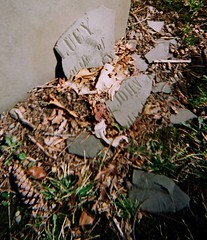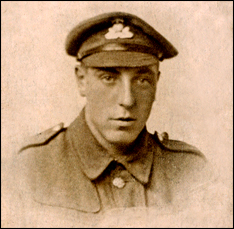
How do we establish our solidarity with the dead and dying without appropriating their pain?
How can we on the Left proclaim our horror and disgust with the killing being done in our name, without resorting to the tactics of a power-mad White House that dared to tell us that the victims of 9/11 cried out for blood?
I do not think these are moot questions. Nor do I think them academic. They have arisen on this site in the past few days, and they are questions that I have long contemplated.
Who casts not up his eye to the sun when it rises? but who takes off his eye from a comet when that breaks out?
Who bends not his ear to any bell which upon any occasion rings? but who can remove it from that bell which is passing a piece of himself out of this world? No man is an island, entire of itself; every man is a piece of the continent, a part of the main.
If a clod be washed away by the sea, Europe is the less, as well as if a promontory were, as well as if a manor of thy friend's or of thine own were: any man's death diminishes me, because I am involved in mankind, and therefore never send to know for whom the bell tolls; it tolls for thee.
Neither can we call this a begging of misery, or a borrowing of misery, as though we were not miserable enough of ourselves, but must fetch in more from the next house, in taking upon us the misery of our neighbours.
John Donne
John Donne proclaimed that every person's death diminished the human continent. We all know the quotation, although most of us have not seen it in its full context. In the very next sentence, he begs the question: Is taking on the pain of others a begging of misery? He answered the question in the negative, although one could argue that he did it for selfish reasons. You see, understanding another's misery reminds us that our own lives are finite, and that if we are to draw closer to God, as Donne saw it, we needed to be reminded of that fact.
For those of us who are atheists, however, that reminder serves another purpose, perhaps. For me, it is a reminder of just how fragile all of us are, how fragile my children are and the other people whom I love, and how, for whatever reason, what is befalling my global neighbor is still of concern to me. Especially when it is being done in my country's name.
Many of us feel these feelings, and we have attempted to bridge the gap between us, we of the cars and plentiful food and relatively safe surroundings, and them, of the bombed-out homes and constant terror of being shot, raped, mutilated.
And so we try to tell their stories, to make them our own. But, in our desire to understand, do we diminish their suffering?
Do we dehumanize the dead when we tell stories about them, as if we knew them? Is it arrogance on our parts? To some readers, perhaps. For others, it is an opening into a life that allows them to feel the pain, indeed, to shed tears for the suffering. And in that it might move people to action, it is a good thing.
But is it redemption? Alas, no.
The dead may not be redeemed. The dead may not be brought back to life, restored to their families, resurrected in their original, perfect human bodies. They are dead. Gone.
When I was still an historian, this troubled me greatly. I read the horrific trials of women such as Matteuccia di Francesco, a young woman of Todi, Italy, who was tortured into making a confession of witchcraft. Her punishment? Death by fire.
One reads the confession of Johannes Junius, and his pain virtually cries out for his story to be told. What was his life like before he was carried away to the strappado, his arms dislocated and broken until he confessed to being a witch?
We cannot know. Sometimes, I used to weep that I could not tell their stories. Ultimately, it was one of the reasons I chose to leave the field. I could not bring these people back to life. I could not give them their lives back, somehow redeem their deaths of its meaninglessness. And the stories I told would be my stories, my interpretation of lives lost, my assumption of their identities in order to make myself feel better about what they had suffered.
I could not do that in the field of history. But I could do as a writer. What is the purpose of art? Well, that's a dumb question as its answers are manifold and meaningless, too. But one purpose, so to speak, of art is to remind us of the human condition. To remind us that despite a myriad of cultural differences, there are similarities too.
This I know. It is a terror to be raped. It is a horror to lose a child.
It is a place to start from. If I cannot bring back to life the dead, I can not allow their deaths to pass in silence.
It is what the writers here do. We howl at the moon. We point our fingers. We publish those pictures to get people to feel, like a kick to the gut, the costs of war.
The other side does it, too. They put words in the mouths of the dead, but only our dead. Not the dead children. If you believe them, there are no children there. Only insurgents and criminals and terrorists.
So, perhaps it is up to us to keep pointing out the crying children, and trying to interpret their tears. It is our act of love and compassion and helplessness. It is our tears of rage.
 This is my great-grandfather. He died in 1917, in Flanders' Fields, in one of the most useless fucking wars ever fought. I know virtually nothing about him. My grandmother was a babe in arms when he was killed. Her mother died when she was nine. She knows virtually nothing about her father. There are no stories to tell.
This is my great-grandfather. He died in 1917, in Flanders' Fields, in one of the most useless fucking wars ever fought. I know virtually nothing about him. My grandmother was a babe in arms when he was killed. Her mother died when she was nine. She knows virtually nothing about her father. There are no stories to tell.
There is just vast, ineffable silence about who Robert Raymond, age 25, of the Lancashire Fusiliers, really was.
In the distance, I hear a bell tolling.
3 comments:
In the end, what really is the point of trying to understand another’s misery, if you’re only going to forget about it seconds, minutes or hours later? Real misery needs to be pervasive; it needs to hit home. That’s the only way it can be understood. Reading about the cost of war on the front page of the New York Times while you’re having breakfast, and feeling bad for the people being blown to pieces, doesn’t change anything.
You are back, without me even knowing.
I am happy at your return, I was up your way earlier this month and would have liked to have goten together but alas my time was very short.
The insanity of what is happening now is a certain sign that we are on the wrong path.
Simpleton statements like "when the stop fighting us, we will stop fighting them" statements like the current administration makes shows that they have no intention of ever ending the violence - they want it.
Welcome back. I had not checked your blog for some time, as it was never updated. Thank you for coming back and injecting some sense into this world.
Post a Comment